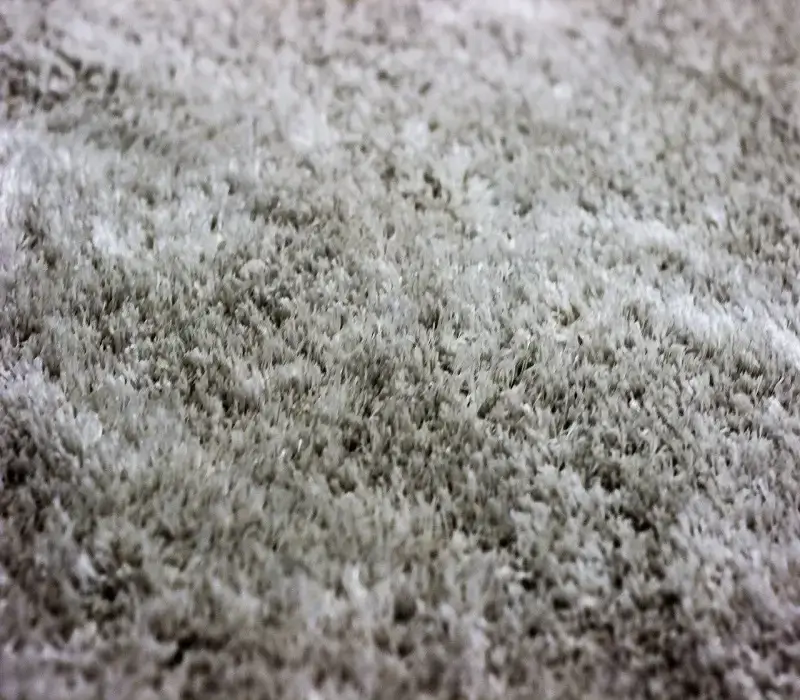Do succulents clean the air? Have you ever looked at a succulent and just felt better? That’s not all in your head – succulents and other plants have tangible benefits for your well-being. Yes, it starts with the oxygen they produce, but there’s more.
Succulents are living breathing (kind of) plants that help you breathe better air and bring calming vibes to the room. They can even help reduce stress levels and improve productivity! Whether they’re in your office, bedroom, or living room, these amazing succulent plants are an effortless way to boost your well-being.
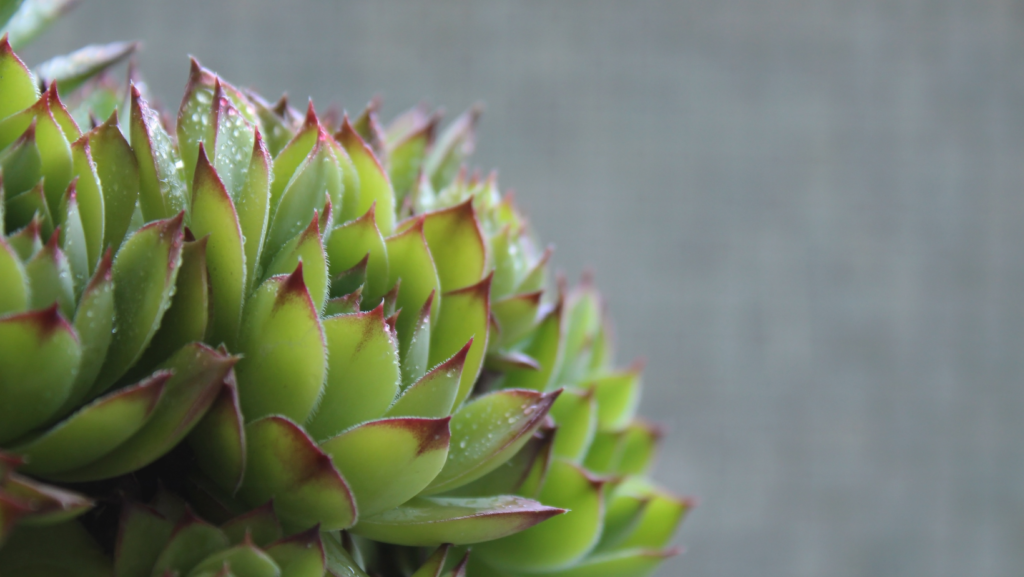
But how exactly do succulents clean the air? In this blog post, we’ll dive into the science of it all and explain why succulents are so beneficial for your health, as well as provide some tips on how to care for them.
Let’s get started!
Introduction to succulents
Succulents are increasingly becoming the trendiest houseplant, and for good reason—they bring not only life and beauty into your home, but they can improve the air quality, too!
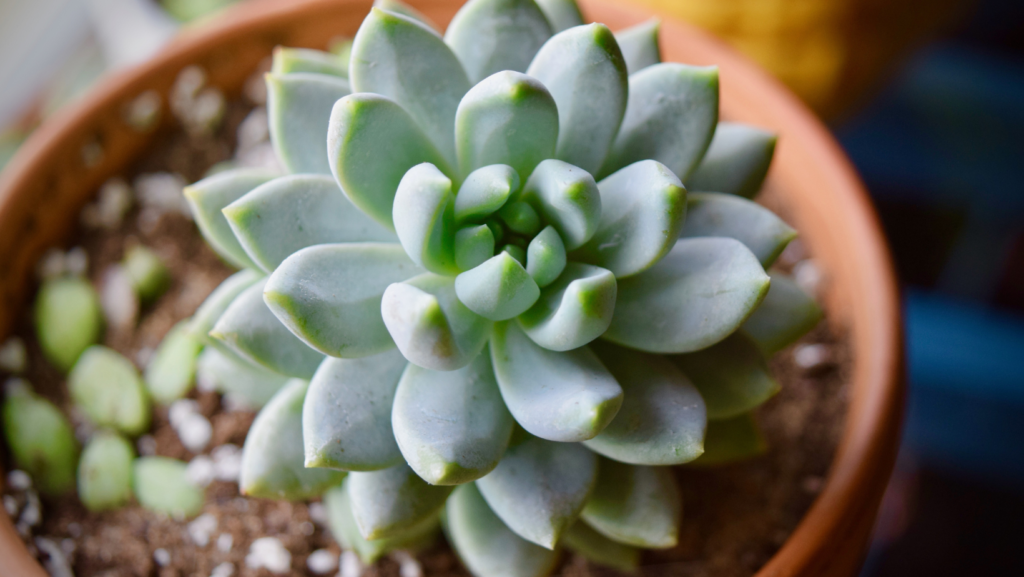
These unique indoor plants, are scientifically proven to filter and purify the air around you, thus improving air quality by removing toxins such as benzene, formaldehyde, and xylene.
A study conducted by the University of Tel Aviv found that growing succulents indoors reduced the amount of these toxins within 24 hours
In addition to this, also succulents produce oxygen — which not only helps you breathe better but can drastically help reduce stress, fatigue, and anxiety too.
Having a few strategically placed succulents in your home or office can make all the difference in improving your well-being as well as your indoor environment and air quality.
Succulents help improve your indoor air quality
Have you ever wondered how your poor indoor air quality affects your well-being? It turns out, the answer is a lot! With this in mind, you should consider investing in something that could help improve the quality of your air—like succulents!
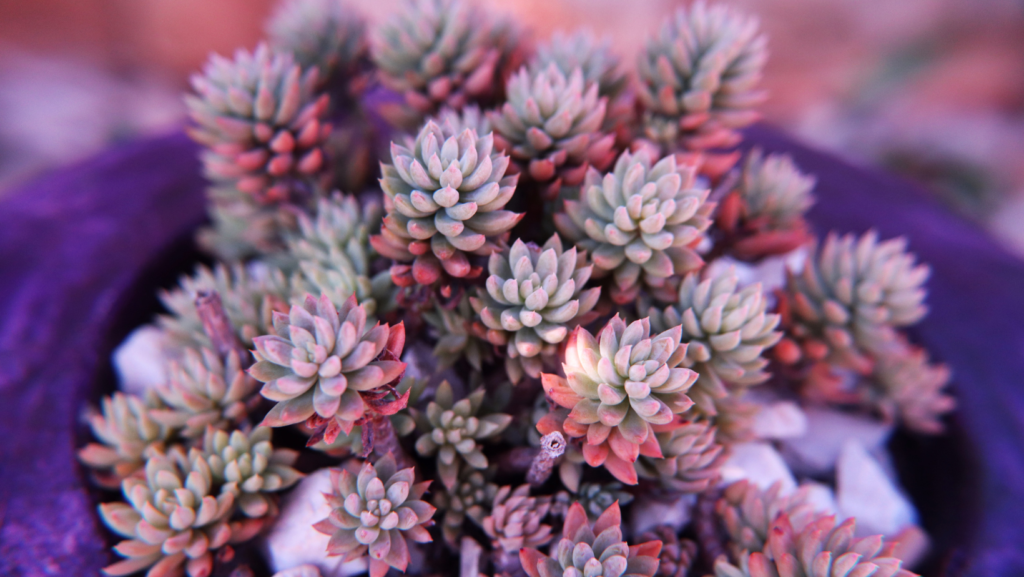
Succulents, which are easy to care for, can purify and clean the air through a process known as phytoremediation. This means they absorb pollutants from the air and convert them into nutrients to sustain their growth.
Succulents are especially beneficial due to their ability to absorb toxins like formaldehyde, benzene, and trichloroethylene from the air.
Moreover, having plants around can add humidity to the air and reduce airborne dust levels in indoor spaces. Not only does this help to purify the air and your well-being inside the home, but it also helps with seasonal allergies.
How do succulents clean the air?
Here’s a cool fact you may not have known—succulents can help to clean the air. How, you ask?
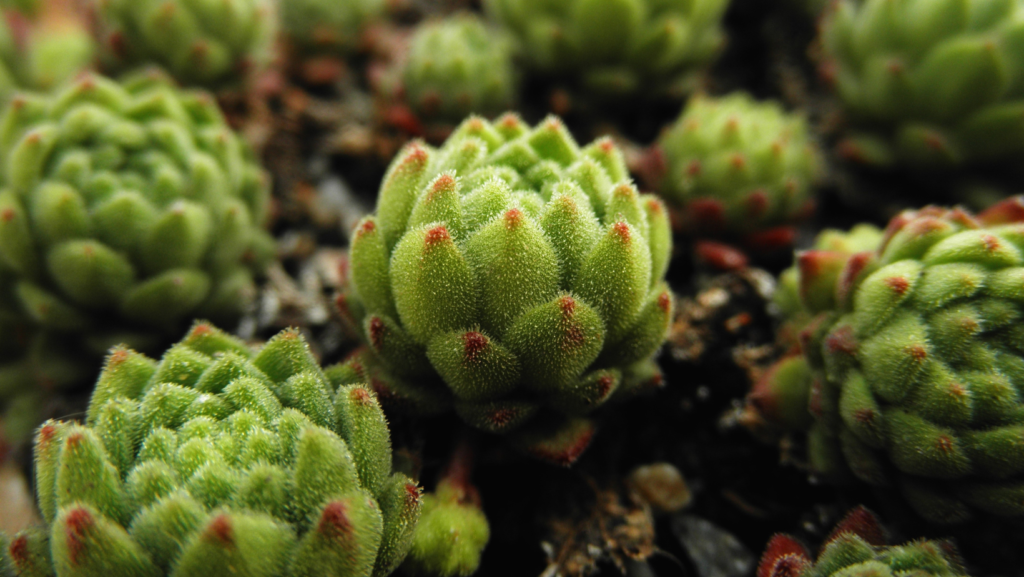
- Producing oxygen
The first way that succulents clean your air is by producing oxygen, which happens through a process called photosynthesis.
During photosynthesis, plants absorb carbon dioxide and in return, they release oxygen. This process cleans the air of all that excess carbon dioxide, leaving it fresh and clear until you exhale again!
- Filtering pollutants
The second way that succulents help to clean your air is by filtering out air pollutants and harmful chemicals like benzene, formaldehyde, and trichloroethylene.
These volatile organic compounds come from things like furniture, carpeting, paints, cigarette smoke, and more, but with the assistance of succulents, those toxins are filtered out of the air where you breathe.
Plus, because of their resilient nature, succulents don’t require much maintenance. All they need is light and some occasional water—which means they’re easy to care for and maintain while helping to both purify indoor air and improve indoor air quality.
Benefits of succulents in the home
You may be wondering – what are the benefits of having succulents in my home, and does that include cleaning the air?
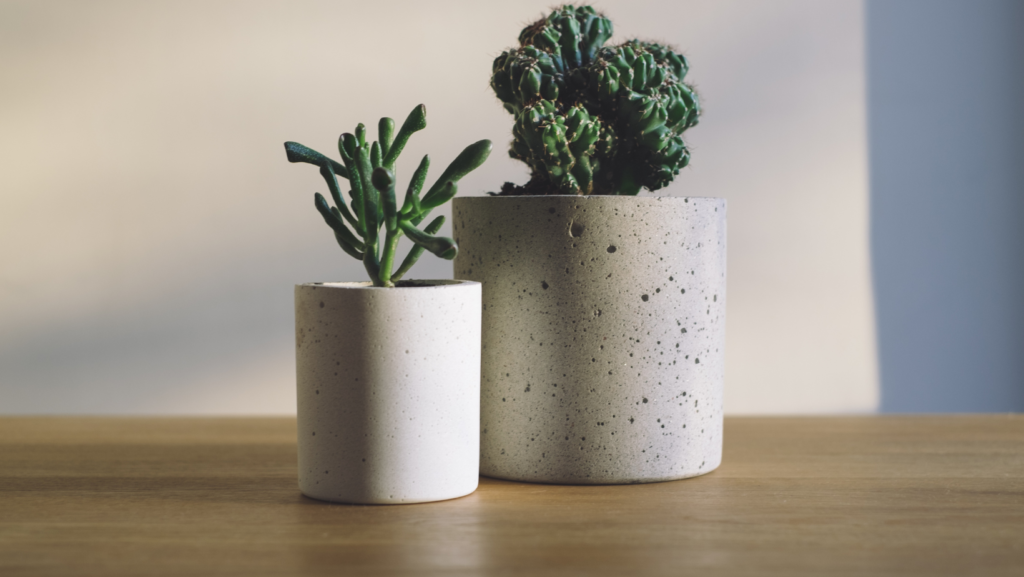
Filtering toxins and odors
The answer is yes! Succulents are the best air-purifying plants for your home that can help filter harmful toxins from the air and act as an air purifier of sorts.
They’re incredibly effective at removing certain volatile organic compounds (VOC), toxic compounds like formaldehyde, benzene, and trichloroethylene, to clean indoor air as well as absorb other household odors.
Improving mood and concentration
Succulents can even help boost your mood and concentration. They thrive in low-humidity environments means they absorb moisture from the air, which helps keep it clean, fresh, and more oxygen-rich so that you can breathe easier.
This improved air quality helps create an atmosphere that improves concentration, clarity of thought, productivity levels, and even sleep efficiency.
Easy maintenance
The best thing about having succulents in your home? They require little upkeep compared to house plants with higher water demand.
Succulents usually only need cactus soil mixture and a watering 2-3 times a month, depending on humidity levels in your home or office space.
Plus since they are a type of cactus they easily survive long periods of drought, making them great for people with busy schedules.
Succulents and humidity levels
Chances are, you know that succulents can help purify the air. But did you know that they can also help to regulate humidity levels in indoor environments?
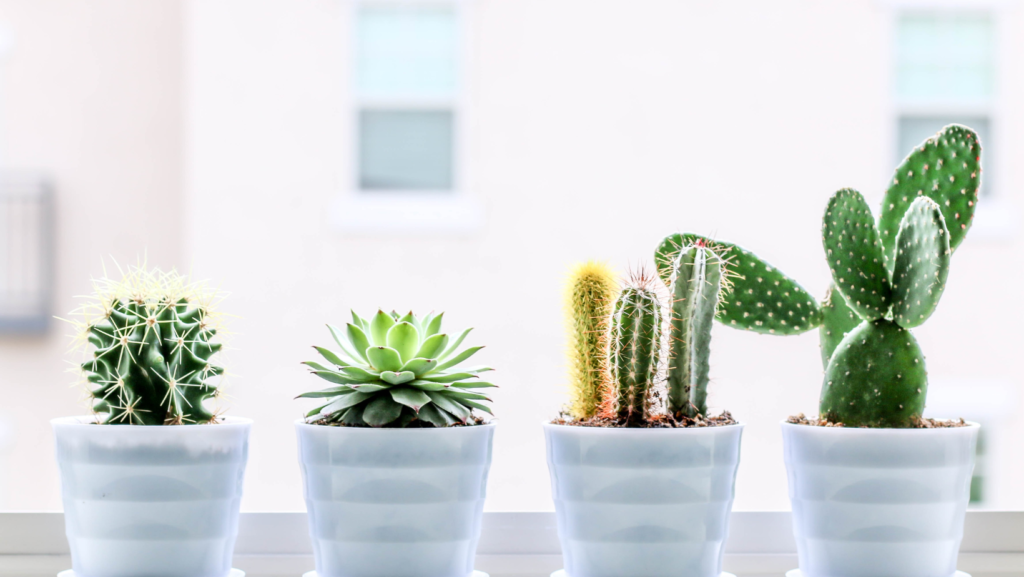
It’s true. Succulents absorb moisture from the air and emit it back out as water vapor. This means that not only can succulents help to keep indoor air pollution down and reduce volatile organic compounds in the air from things like paint, furniture, and carpets; but they can also give a room or office space a comfortable level of humidity.
This doesn’t just make it feel better — indoor plants can improve your well-being, too. As well as helping mitigate conditions like asthma that come on due to dryness in the atmosphere, this process can help you sleep better, too.
Plus, since succulents require very little water and absorb more than regular plants, their presence helps reduce your water usage — so it’s not just the air that benefits most indoor plants from their inclusion!
Best air-purifying succulents
When it comes to choosing air-purifying succulent plants for your home, there are many options to choose from! Succulents are low maintenance and come in a variety of shapes and sizes, meaning there’s something for everyone.
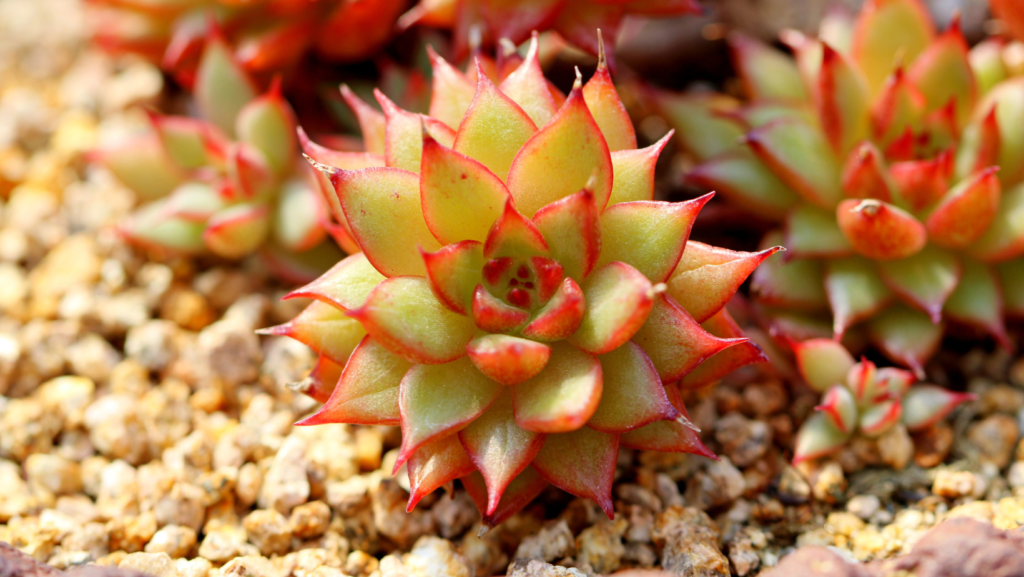
- Aloe Vera (Aloe barbadensis)
It helps improve air quality thanks to its wonderful properties. Aloe plants reduce the concentration of formaldehyde by converting it to food for themselves.
It is a top air-purification technology from NASA which has been praised for its quality and performance.
Recommendations: Aloe vera is a popular succulent plant that doesn’t require frequent watering. Let the soil dry out before watering the plants. Aloe Vera flourishes in the sun.
- Snake plant (Mother-in-law’s tongue) Sansevieria trifasciata
The name snake plant is given due to its long, glossy green leaves that have a pattern similar to the scales of a snake. It is also known as “Mother-in-Law’s Tongue” due to the sharp, pointed edges of the leaves.
Snake plant also makes good succulents to purify air as they absorb harmful toxins into leaves. A snake plant can convert CO2 to O2 and can easily be put on bedside tables. Snake plants can also eliminate benzene and xylène in the air.
NASA researchers have found that a snake plant can remove formaldehyde, benzene, and xylene from the air in low-carbon environments at concentrations ranging between 15 ppb and 30 ppb in total.
Recommendations for the care of a snake plant: Avoid excessive watering.
- Jade plant (Crassula Ovata)
The Jade plant, also called Crassula Ovata is a succulent that is great for purifying air. Jade plants are not only visually appealing. This plant helps reduce toxins and tobacco smoke.
It can grow to room temperature with medium light, but weekly watering is recommended. The jade plant is a simple succulent plant that is best kept in areas that have bright, direct sun. It’d be ok to ignore that.
It represents luck and can bring you great fortune!
- Red-edged Dracaena (Dragon tree)
Red-edged Dracaena, also known as Janet Craig, often called Corn dracaena, originates from south-eastern Mozambique.
Recommendation and care red-edged Dracaena: dracaena plants will be successful assuming proper care. The red-edged Dracaena can tolerate low light conditions but the accent colors will fade, and they will grow slower. Excessive watering must be avoided to keep it moist without making it soggy.
- Corn Plant
Corn plants can help you breathe clean air by removing toxins. Typically, this photosynthesis requires very little illumination. The corn plant tolerates the slightest neglect.
Recommendations and care: The Corn Plant has an easy care function that works very well with indirect sunlight. Your soil should remain moist consistently and be fertilized every six months.
Whichever type of succulent you opt for, it’s important to ensure they get enough sunlight and have proper drainage, and don’t get overwatered. With a bit of research and a bit of care, your home could soon be filled with lush, air-purifying succulents!
NASA clean air study project
Succulent-derived purification technology for air purification was first studied long ago in the NASA Clean Air Project. It aims at exploring how the purification of air in space stations is intended to ensure long-standing, long-term space habitation.
They found that photosynthesis in plant tissue absorbs CO2 by oxygen and sends it back into its atmosphere. NASA’s research found that they are able of removing 87 percent of volatile organic compounds present in indoor air (VOC).
The results showed that cleaner air would be obtained if the plants were placed in each 100-square feet (9.3m2) of gap or space, despite undergoing sealed conditions.
Conclusion
After all that we’ve discussed here, it’s clear that succulents can be great at purifying the air in our homes. Succulents produce oxygen and absorb air pollution, allowing us to breathe more easily and comfortably. Not to mention, they look great when potted in various shapes and placed strategically in various parts of the house.
But that’s not all; succulents also have healing properties, have been associated with improved concentration and reduced stress and anxiety, and are great for socializing. To top it off, succulents are incredibly easy and low-maintenance to care for.
So, why not give succulents a try? They don’t just make you look cool—they come with many health advantages too.
FAQ
Do succulents help with air quality?
Yes, they do! Succulents are known for their air-purifying abilities. That’s because succulents act as natural air scrubbers, and excellent air purifiers by taking in carbon dioxide and releasing oxygen. Higher levels of oxygen in a room can boost your mental health and well-being, and even improve your sleep.
How often do I need to water it?
The answer depends on which type of succulent you opt for — some require more watering than others — but a good rule of thumb is to water the plant once a month or every two weeks if it’s displaying signs of wilting or light browning leaves.
Before watering, feel the soil for moisture; if it’s already dampened, then skip that session until the soil moist enough the next time around.
Do succulents give off a lot of oxygen?
Succulents get oxygen by “inhaling” CO2, and in the process emitting oxygen from it.
Do succulents have health benefits?
Succulents are traditionally used for treating medical ailments like severe wounds or ulcers. Many contain medicinal properties, such as Aloe Vera or Yucca. Aloe vera plants are known in many ways for their health advantages, including juices.
Should you keep succulents in your room?
Unlike most plants, succulents are particularly tolerant to cold climates and can be neglected. During summer, they thrive in warm, dry conditions with little or no water retention ability. They are very suitable for indoor growing and perfect for those wanting low-maintenance air-purifying plants.
If you need to read about how to remove soap residue from carpet, please read our article.
We're an affiliate
We hope you love the products we recommend! Just so you know, CleanyHome.com is a participant in the Amazon Services LLC Associates Program, an affiliate advertising program designed to provide a means for sites to earn advertising fees by linking to Amazon.com.

